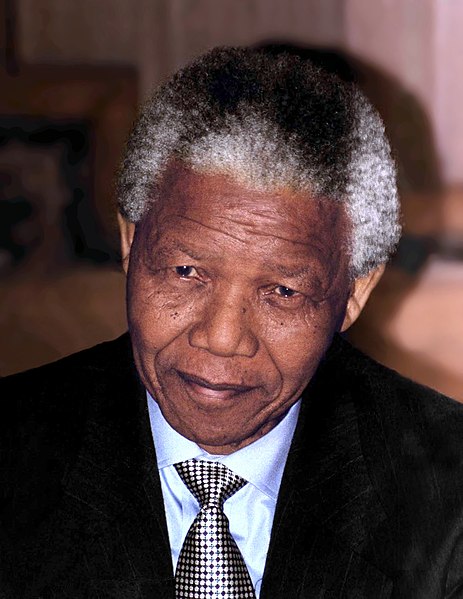Timeless Qualities: The Key to Great Leadership
The Importance of Timeless Qualities in Today’s Ever-Evolving Leadership Field
Leadership is a dynamic and ever-evolving field that constantly requires adaptation to keep up with changing times. With the advent of new technologies and the emergence of new challenges, the demand for effective leadership has never been greater. The ability to inspire, motivate, and guide others towards a common goal has always been an essential aspect of leadership, but the qualities that make great leaders stand out remain timeless.
As we delve into the intricacies of leadership, it is crucial to acknowledge that great leaders possess a combination of innate and learned qualities that help them navigate complex situations and inspire those around them. While some leadership qualities may be more valuable in certain situations, others are essential in all circumstances. In this article, we will explore some of the timeless qualities that make great leaders stand out and why they are critical to success.
Vision
One of the essential qualities of great leaders is vision. A clear vision provides a roadmap for where an organization is headed, and it serves as a source of motivation for everyone involved. Great leaders understand the importance of having a compelling vision and are capable of articulating it in a way that inspires others to join them on the journey.
A leader’s vision should be aligned with the organization’s mission and values, and it should be communicated effectively to all stakeholders. A compelling vision must also be realistic, measurable, and achievable within a reasonable timeframe. By creating a shared sense of purpose, leaders can motivate their teams to strive towards a common goal, creating a culture of collaboration and accountability.
Great leaders have the ability to think beyond the present and envision a future that is better than the current reality. They are constantly seeking out new opportunities for growth and development, and they encourage their teams to do the same. Visionary leaders have an uncanny ability to identify trends and anticipate changes in their industry, allowing them to stay ahead of the competition.
Examples of visionary leaders include Elon Musk, who founded SpaceX with the vision of making space exploration accessible to everyone. Steve Jobs was another visionary leader who transformed the technology industry by introducing revolutionary products like the iPod, iPhone, and iPad. Both Musk and Jobs had a clear and compelling vision that inspired their teams and changed the world.
Having a clear vision is an essential quality of great leaders. A strong vision provides direction and motivation, creates a sense of purpose, and helps to inspire others to join in the journey towards achieving shared goals. Great leaders possess the ability to think beyond the present and envision a future that is better than the current reality. By cultivating this timeless quality, leaders can create a lasting impact and drive positive change in their organizations and beyond.
Resilience
Resilience is another timeless quality that makes great leaders stand out. In the face of adversity, great leaders remain steadfast, determined, and focused on achieving their goals. They understand that setbacks and failures are a natural part of the journey and that overcoming them requires resilience and perseverance.
Resilience is the ability to bounce back from setbacks, failures, and challenges. It is the mental and emotional toughness that enables leaders to keep going, even in the face of seemingly insurmountable obstacles. Resilient leaders do not give up easily; they are persistent and tenacious in their pursuit of success.
Leaders who possess resilience are better equipped to handle stress, uncertainty, and ambiguity. They are not afraid to take calculated risks and make tough decisions, even when the outcome is uncertain. Resilient leaders are adaptable and can pivot quickly in response to changing circumstances, which is especially important in today’s fast-paced and ever-changing business environment.
Examples of resilient leaders are abundant throughout history. Abraham Lincoln faced numerous setbacks and failures throughout his life but remained steadfast in his pursuit of a better future for the United States. J.K. Rowling, the author of the Harry Potter series, faced rejection from multiple publishers before finally finding success. Despite these setbacks, she persisted and went on to become one of the best-selling authors of all time.
Resilience is a critical quality that great leaders possess. It enables them to bounce back from setbacks and failures, handle stress and uncertainty, and remain focused on achieving their goals. Resilient leaders are persistent, adaptable, and not afraid to take risks. By cultivating this timeless quality, leaders can inspire their teams and overcome any challenge that comes their way.
Empathy
Empathy is another essential quality of great leaders. It is the ability to understand and share the feelings of others, which is critical in building relationships, fostering teamwork, and creating a positive workplace culture. Empathetic leaders are more attuned to the needs of their team members, which helps them to create an environment that is more conducive to success.
Empathy in leadership involves listening actively, communicating effectively, and showing understanding and compassion towards others. Leaders who possess empathy create a safe and inclusive environment that encourages collaboration and innovation. They are also better equipped to resolve conflicts and build consensus, as they are able to see things from different perspectives.
Empathetic leaders also understand that their team members are not just employees, but individuals with unique experiences, strengths, and challenges. By showing empathy towards their team members, leaders can build trust, loyalty, and commitment, which are essential for creating a high-performing team.
Examples of empathetic leaders include Nelson Mandela, who showed compassion and forgiveness towards his oppressors, and Mother Teresa, who dedicated her life to serving the poor and marginalized. Both leaders were able to connect with others on a deep emotional level, which enabled them to inspire and motivate people to achieve great things.
Empathy is a timeless quality that great leaders possess. Empathetic leaders are better equipped to build relationships, foster teamwork, and create a positive workplace culture. By showing understanding and compassion towards their team members, leaders can build trust, loyalty, and commitment, which are essential for creating a high-performing team. By cultivating this timeless quality, leaders can make a lasting impact and create a workplace that is not just successful, but also fulfilling and enjoyable.
Strategic Thinking
Strategic thinking is another timeless quality that great leaders possess. It is the ability to think ahead, anticipate potential obstacles, and develop a plan to achieve long-term goals. Strategic thinking is critical in decision-making and problem-solving, and it enables leaders to make informed choices that align with their vision and mission.
Strategic thinking involves analyzing data, considering multiple options, and evaluating the risks and benefits of each alternative. It requires a big-picture perspective and the ability to see how different pieces fit together to achieve a common goal. Leaders who possess strategic thinking can develop a roadmap for success and ensure that everyone on their team is aligned with the plan.
Strategic thinking is especially important in today’s fast-paced and ever-changing business environment. Leaders who possess this quality are better equipped to anticipate and respond to changes in the market, competition, and technology. They can also identify new opportunities for growth and development, which is essential for staying ahead of the competition.
Examples of strategic leaders include Jeff Bezos, who built Amazon from a small online bookstore into one of the largest retailers in the world. Bezos was able to anticipate the potential of e-commerce and develop a strategic plan that enabled Amazon to dominate the industry. Another example is Satya Nadella, who transformed Microsoft by shifting the company’s focus to cloud computing and artificial intelligence. By embracing strategic thinking, Nadella was able to revitalize Microsoft and position it for long-term success.
Strategic thinking is a critical quality that great leaders possess. Leaders who possess this quality are better equipped to make informed decisions, anticipate potential obstacles, and develop a plan to achieve long-term goals. They can also identify new opportunities for growth and development, which is essential for staying ahead of the competition. By cultivating this timeless quality, leaders can create a roadmap for success and ensure that everyone on their team is aligned with the plan.
Cultivating Timeless Qualities for Lasting Leadership Impact
In conclusion, leadership is an ever-evolving field that requires continuous learning and growth. While new insights and approaches are emerging all the time, there are some timeless qualities that make great leaders stand out. Vision, resilience, empathy, and strategic thinking are essential qualities that great leaders possess, regardless of the circumstances.
Leaders who possess a clear vision can create a sense of purpose and direction for their team, inspiring them to strive towards a common goal. Resilience enables leaders to overcome setbacks and challenges, persisting in the face of adversity. Empathy enables leaders to build relationships, foster teamwork, and create a positive workplace culture. Strategic thinking enables leaders to make informed decisions, anticipate potential obstacles, and develop a plan to achieve long-term goals.
Great leaders possess a combination of innate and learned qualities that enable them to navigate complex situations and inspire those around them. While some qualities may come more naturally to certain individuals, all leadership qualities can be developed and refined over time. By focusing on developing these timeless qualities, leaders can create a lasting impact and drive positive change in their organizations and beyond.
In today’s rapidly changing business environment, it is more important than ever for leaders to possess these timeless qualities. The ability to think critically, anticipate change, and adapt to new situations is critical in achieving long-term success. By cultivating these qualities, leaders can create a workplace culture that is not just successful, but also fulfilling and enjoyable.
In conclusion, leadership is a journey that requires continuous learning and growth. By embracing the timeless qualities of great leaders, individuals can become more effective leaders, inspiring those around them and driving positive change in their organizations and beyond.







